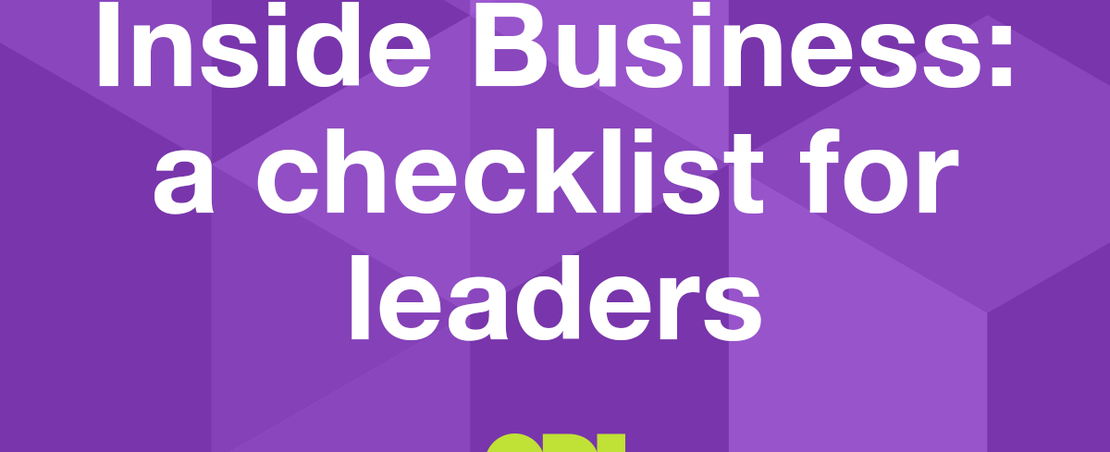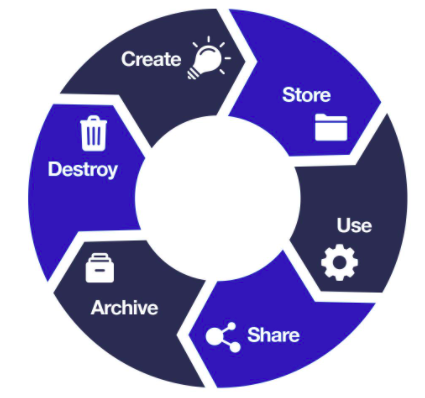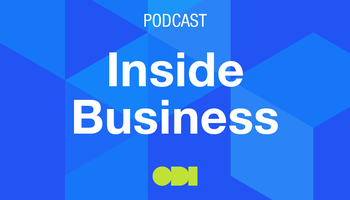
This checklist is for business and technical leaders who want their brand to be ‘trusted with data’. The goal is to make building trust with data part of both strategic planning and everyday data operations.
Being trusted with data is a source of value for businesses.
- Consumer trust results in greater uptake of services, more sharing of data and social support.
- Partner and supplier trust increases the flow of data – enabling the development of new services and insights.
- Regulator trust is the basis of an operating environment where regulation is aligned with both business and consumer needs.
What does this checklist include? The checklist suggests six critical outcomes leaders can work towards through a series of questions. In addition to helping with your planning, these questions will help you identify things that may be missing from your current approach. In each area there are suggestions for tools you can use to take practical steps forwards.
To help you record your answers and findings, the questions are summarised in this spreadsheet that you can either download or copy.
The six checklist sections:
- Aligned business and data strategy
- Trustworthy data infrastructure
- Processes that build trust
- Ethical data practices
- Open and trustworthy data ecosystems
- The right data culture
Understand how your data strategy can be better aligned to your business strategy to build trust, in ways that create an advantage for your business.
The goal? To develop a data strategy that is more than just a plan for governing data. A data strategy that is a plan for building and applying a data infrastructure that your business and others can trust. A data strategy that ensures the way data is collected, used and shared supports achievement of business goals
- How does your data strategy support your business strategy? Identify the role of data in achieving business goals.
- Is your data strategy documented and available to colleagues across your business? Is it shared more widely – for example with costumes and partners?
- Who owns the development of data strategy in your business? Who else needs to be involved beyond your data teams?
- What’s different about your data strategy compared to competitors? How does it help you gain insights to improve performance?
- Does your data strategy cover management of data assets across their whole lifecycle?
- How does your data strategy address plans for developing data infrastructure – data assets, people, policy, process, technology?
- Is there a clear vision for data that can inspire others?
- Does your data strategy consider your wider ecosystem of partners, customers and regulators? Engaging externally can help build trust with customers, partners and re-users of data you might share.
- Is accountability for delivery of the strategy spread across both business and technical functions (wider than data teams)?
- Does your data strategy prioritise the elements of data infrastructure that support specific business goals?
- Will non-technical people be able to read and understand your data strategy? Does it use business terms or technical terms?
- Do you have a roadmap to deliver your data strategy?
- What is the process for evaluating and iterating on the strategy so it evolves to changing business needs and circumstances?
Learning resources:
- How your data strategy could build trust in your brand (article)
- Data strategy: Why it matters for businesses now more than ever (podcast)
- How to develop a transformative data strategy with an ecosystem approach (webinar)
- How leaders can develop a data strategy that addresses global challenges (article)
- Data strategy – how an ecosystem approach can help shape your vision (blogpost)
- How to write a good open data policy (guide)
Identify the components of your data infrastructure (data, people, policies, process and technologies) that will need to be enhanced to build trust, in ways that support your business goals, and to ensure a steady supply of data to generate insights and inform decisions.
The goal? To have insights you can trust, which means your data infrastructure needs more than good technology.
Explore these questions:
- For your business and data strategy what insights and datasets are required to inform decisions and monitor progress against business goals?
- Who is accountable for your critical datasets? Who is going to ensure they meet the required standard?
- What systems and tools are critical to your business strategy? Are they fit for purpose? Are they adequately resourced?
- What policies and processes govern how data should be collected, used and shared in your organisation? Do these meet the expectations of your customers and stakeholders?
- How might current policies and processes need to change to improve progress towards your strategic goals?
- How can you engage any communities that data is about who might be impacted by your use of that data?
- How widely available are your critical datasets – are they for internal access, shared or open access? Would sharing them more widely help with building trust with customers, partners and clients?
- Could you build more trust and engagement by making parts of your data infrastructure more shared and open?
Tools:
- The Data Spectrum: understand the language of data and where your data sits on a spectrum from closed, to shared, to open.
Learning resources:
Get help with data infrastructure
This section has the goal of identifying and evaluating business processes that can be put in place or improved, to increase trust around data.
The data lifecycle will help you examine the complexity of data-related business processes:

The data lifecycle helps you think about the processes associated with how you manage the collection, use and sharing of data in your organisation.
The goal? Ensuring the whole lifecycle is covered will give confidence that data will be looked after, you will be compliant with laws and regulations, and able to demonstrate to customers how you have invested in keeping data about them safe.
At each of the stages in the lifecycle you therefore need to ask:
- How do your processes, people and tools work together to build trust?
- Do you have processes in place that cover each stage of the data lifecycle?
- Are you conforming to legal and regulatory requirements?
- Do you have systems and processes in place to ensure appropriate levels of privacy and security?
- Are your approaches financially sustainable and contributing to revenue generation?
- What processes do you have to mitigate risks with collection, use and sharing of data? Risks might be legal, ethical, commercial or reputational.
- Do you have the skills you need to manage data in line with your policies and processes?
- Are you sharing knowledge and good practice internally and externally?
- Do you have adequate levels of governance and oversight for data?
- To which people, organisations or communities are you accountable to? How do you engage with them?
- Are you operating with an appropriate level of ethical practices?
- How transparent do you need to be about your collection, use and sharing of data?
- How do you demonstrate the positive impact your use of data has on the people, organisations and communities you work with and serve?
Tools:
- Trustworthy data stewardship guidebook: guidance, tools and activities to help organisations become trustworthy and trusted stewards of data.
Learning resources:
- Assessing risks when sharing data (guide)
- Describing and documenting data (guide)
- UK government metadata best practice (guide)
- Documenting and sharing models (article
- UK government data quality framework (documentation)
- ISO 19158: quality assurance of data supply (standard)
Legal frameworks and organisational processes are not enough on their own to guide ethical and proportionate collection, use and sharing of data. Data ethics is a branch of ethics that considers the impact of data practices on people, society and the environment.
The goal: Building ethical considerations into how data is collected, used and shared in order to build and retain trust.
Business and data leaders need to think about potential data ethics concerns at an organisational level. This entails working through the following questions:
- What do we know about the data we work with? In particular, what are the data sources, our rights to use data, and any limitations in the data?
- What is the ethical legislative context relevant to our organisation and sector?
- What are the ethical risks in how we use data? What are our reasons for using it? What are the potential positive effects? What are the potential or current negative effects and how do we minimise them?
- How do we plan to engage people about ethics? How can people engage with us if they have concerns? How do we communicate our purpose for using data (especially to those impacted by use of the data)? What levels of openness and transparency should we operate?
- How do we integrate data ethics in our projects and operations? How should we do this? When should we review our methods and processes? What are the specific actions we should take?
- How do we compare to our competitors or similar organisations? This entails assessing and benchmarking your ethical data practices across seven key themes: Organisational governance; Skills and knowledge; Data management; Finance; Customer requirements; Legal considerations.
- Are there any cultural considerations relevant to how you use data?
- How does your use of data impact the environment?
- Will anyone be surprised by you holding, sharing or using data?
Tools:
- The ODI Data Ethics Canvas: The Data Ethics Canvas is a tool for anyone who collects, shares or uses data.It helps identify and manage ethical issues – at the start of a project that uses data, and throughout.
- The consequence scanning toolkit: a dedicated time and process to consider the implications of technology and product development – one of the key aspects of ethical data practices.
- Data ethics maturity model: a tool for anyone who collects, uses and shares data. It helps assess and benchmark how widely embedded data ethics culture and practices are across your organisation.
Learning resources and articles:
- Assessing risks when sharing data (guide)
- Reviewing and iterating on your approach to data ethics (blog)
- Introduction to data ethics and the Data Ethics Canvas (paid course)
- Data ethics professional and facilitator (paid course)
- Operationalizing data ethics (webinar)
Your data ecosystem consists of the organisations, communities and people that create and benefit from the value created by the data flowing through your data infrastructure.
The goal? Increasing the opportunities for people and organisations to access and use data can help increase the impact of your organisation, improve collaboration and increase valuable innovation. Openness can also increase trust in what you are doing.
The questions in this section are therefore designed to help you first understand your ecosystem, then create a shared understanding of how to increase value and trust across it.
This means answering the following questions about your data ecosystem:
- Do we have a visual representation of our data ecosystem?
- Who are the actors in our data ecosystem? Who are you currently engaging with? Who might you engage with in future?
- Where is useful data being held (internally or externally to the organisation)? What new sources of data do you need?
- How is data being accessed and shared?
- How is data being used to create value? This could be social, economic or environmental value through insights, decisions, products or services.
- How does financial and other tangible value flow?
- How could data be better used across your ecosystem to create value?
- What are the opportunities for improvement?
- What obstacles can you identify?
Tools:
- The data ecosystem mapping tool: Use the tool to create a data ecosystem map that helps you to understand how data creates value. It identifies the data, data stewards and data users; the different roles they play; and the relationships between them.You can use your map as a practical tool to plan and visualise a data ecosystem, or show opportunities for increasing value to particular parts of a data ecosystem.
Learning resources:
Building trust requires the support of your people, in particular how they work and think together.
The goal: Identify changes to individual skills and mindsets, along with changes to the way work gets done.
This means answering the following questions about your people and your culture:
- Do our people have the right level of data literacy? Data literacy is the ability to think critically about data in different contexts and examine the impact of different approaches when collecting, using and sharing data and information.
- What mindsets do our people have when it comes to accessing, using and sharing data?
- How do our ways of working support or undermine increasing trust in data?
- Do we have the right set of practical skills to support ethical data practices?
- Do we have the right set of skills to ensure we meet relevant legal obligations and regulatory frameworks?
- Do policies and processes support (or undermine) the development of a working culture that will help your organisation build trust in how you create, access and use data?
Learning resources:
- The Data Skills Framework: connect data literacy to business strategy (free on demand webinar)
- Benchmarking data literacy in your organisation (free on demand webinar)
- Open data maturity model (guide)
Need help?
Fill this form out to get independent advice and support from an ODI specialist.
